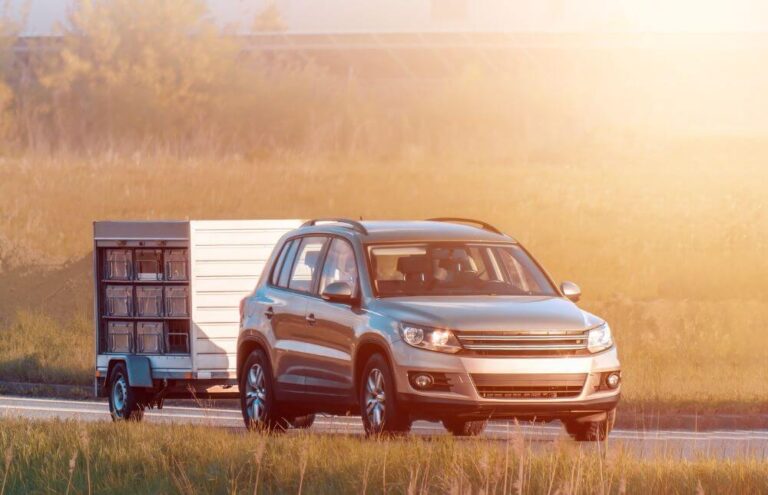A utility trailer can open the door to a range of income-producing activities. These trailers are versatile and can handle various types of hauling or mobile services. Choosing quality trailers for your operation helps you meet customer expectations and comply with safety standards. Below are nine business ideas built around different trailer setups, each showing how people earn steady revenue with practical equipment.
1. Mobile Lawn Care and Hauling
Many independent lawn care operators use a utility trailer to transport mowers, trimmers, and supplies between jobs. A trailer with a sturdy ramp gate and adequate floor length lets you load equipment quickly. Adding slide-in loading ramps can help with heavier machines like zero-turn mowers. Some owners also install LED lights for better visibility at early morning or evening jobs. This setup can handle seasonal cleanup work, brush hauling, or mulch delivery, which adds extra income during slower mowing periods.
2. Residential Cleanup and Waste Removal
Offering junk removal or residential cleanup services can generate steady bookings. A strong trailer built with quality steel and reinforced sides carries old furniture, yard debris, or renovation waste safely to disposal sites. Using dump trailers speeds up unloading and reduces manual labor, especially when paired with spreader mode for gravel or soil delivery. Building a reputation for prompt scheduling and proper disposal practices helps attract repeat customers and referrals.
3. Transporting Equipment for Contractors
Small contractors often need help moving machinery between sites. People who own equipment trailers can build a business hauling compact loaders, pressure washers, or even a scissor lift. Adding trailer parts such as upgraded brake systems, radial tires, and a reliable roof rack for loose materials makes the job more efficient. Customers appreciate clear product specification and predictable delivery schedule so their tools arrive on time and in safe condition.
4. Vehicle and Motorcycle Transport
A car hauler business can serve dealerships, online auto auctions, or private buyers who purchase vehicles in other states. Hauling motorcycles or classic trailers for collectors can also fill the schedule. Single and tandem axle configurations let you match the weight of different vehicles. Regular repacking of bearings and timely brake replacements keep the operation compliant with road safety standards and avoid delays. Offering maintenance services to other haulers can create an extra revenue stream alongside transport work.
5. Mobile Retail or Farmers’ Market Setup
Vendors at farmers’ markets, craft fairs, or pop-up shops often lack storage and transport solutions. Shop utility trailers fitted with shelving or secure boxes can carry goods, tents, and tables from one venue to another. Using a flatbed trailer with tie-down points gives flexibility for bulk produce or large displays. Attention to inventory management and clear manufacturing process labeling on products helps customers trust what you sell. A simple trailer dealership connection can supply replacement trailer parts or offer financing options if you decide to expand.
6. Construction Material Delivery
Contractors and homeowners sometimes need quick delivery of lumber, stone, or roofing supplies. A hauling service using strong metal fabrication in its trailers can fill this gap. Pairing equipment with a scissor lift or slide-in loading ramps speeds up offloading at tight job sites. Floor length must match the materials you plan to carry, and supply chain quality control on your tie-downs matters for safety. Over time, consistent service builds steady market demand among local builders.
7. Mobile Maintenance and Repair Services
Another path is running a mobile repair or maintenance unit for small engines, appliances, or tools. Outfitting a trailer with compartments for tools, spare trailer parts, and diagnostic equipment creates a rolling workshop. Adding a roof rack for ladders and organizing space with product specification labels saves time on site. Offering brake replacements for trailers, repacking bearings, or routine maintenance services for contractors’ fleets can become a niche side income. Clear pricing and a dependable delivery schedule of parts keep customers loyal.
8. Specialty Hauling for Events
Event organizers often need transport for staging, seating, or audio gear. A flatbed trailer with removable sides can move bulky items, while spreader mode helps when moving loose fill for temporary paths or tent foundations. Installing LED lights on the trailer improves visibility at night load-outs. Matching trailer parts and maintenance services to each job reduces downtime. Strong quality control on your equipment also reassures clients that you can handle high-value cargo without delays.
9. Expanding Through Rentals
Once you build up several trailers, renting them to other small operators can bring in steady passive income. Offering equipment trailers, dump trailers, or a classic trailer for weekend moves or special projects attracts a range of renters. Clear product specification sheets, documented manufacturing process details, and a predictable delivery schedule make the rental experience straightforward. Handling brake replacements, repacking bearings, and other maintenance services in-house reduces costs and keeps your inventory ready.
Conclusion
Owning trailers opens multiple business paths, from hauling to mobile services or rentals. Choosing durable designs built with quality steel and paying attention to floor length, ramp gate strength, and radial tires keeps operations efficient. Managing inventory, product specification, and delivery schedule carefully helps maintain road safety and meet market demand. With clear planning and regular maintenance, a single trailer can become the backbone of a reliable and profitable venture.


